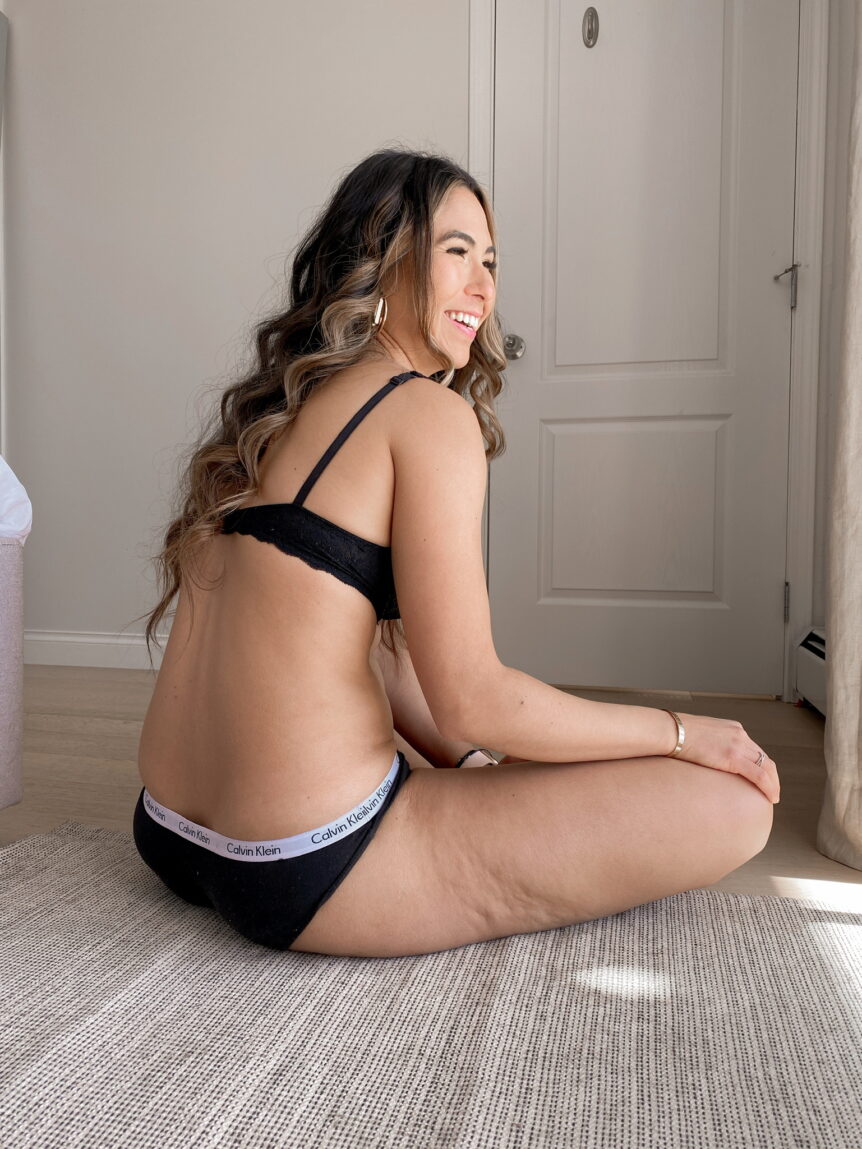What would you tell me if I came to you and said I’m feeling down because I didn’t get any workouts in this week? I was overwhelmed, busy at work, and just couldn’t find the time. You’d probably say, that’s okay. It sounds like you had a hectic week and what you probably needed was more rest in order to take care of yourself. You wouldn’t likely say, Oh my gosh you need to hustle harder, do more, get that workout in.
But would you be as compassionate for yourself?
How we talk to ourselves is not always how we talk to our best friends. That’s where this double standard comes into play. How would you feel if your best friend said, “You didn’t get any workouts in? You just aren’t working hard enough. You must not want it.”
I hope you’d rethink your friendship!
This double standard isn’t only for workouts and goals. It also applies to how we talk about our own bodies. When we see an “unflattering” photo of someone else, (ie: sitting bent over with rolls, folds, cellulite, all the real stuff) odds are we respond very different than if we were to see the same photo of ourselves. I bet if you were to scroll through my instagram and saw all of my “imperfect” photos you’d either think nothing of it or relate to how my unposed body looks. Of course there will always be outlier internet trolls. But overall, nobody really cares how my body looks or they feel relieved to see representation.
Why don’t we show the same sort of grace and appreciation for our own unposed pictures?
The other day I was shopping online for a bikini and saw a model that had a slight roll on her back and when I saw it I thought, “Oh my god,” not because I thought she shouldn’t be modeling, quite the opposite. I was in awe. It made me think of how different my body image might have been growing up if I were to have seen average/plus sized models frequently.
I know how hard it can be to look at unflattering photos of ourselves or notice that clothes fit tighter and have compassion for ourselves. But the only way to change body image, is to change our inner dialogue. But how do we do that?
Tune into your self talk
We can only make changes when we are aware of what needs to change. In order to do this, monitor yourself. Notice how critical you are or what triggers you.
Thank your body
Thank her daily for getting you through the day. For taking you on a sunset walk or to all of your favorite places. She deserves your thanks!
Take a pause when you start to be critical
At the beginning, it might be hard to silence the nagging voice of bad body image. Be kind and patient to yourself. You are undoing YEARS of bullsh** societal standards. If you find yourself standing in the mirror picking apart everything, take a breath, silence the voices, and think of who benefits from you feeling that way. You deserve kindness, appreciation, and love.
Set boundaries
Do your friends mention how their bodies look or things they wish they could change about them? Odds are everyone could benefit from self love. Set some boundaries with those who are overly critical of their bodies or even yours. You are allowed to express what conversations make you uncomfortable.
Overall, kindness and compassion drive the self love movement. On my difficult days, it truly does help me to remember that nobody cares what size I am and none of my friends or close family members love me less for my rolls and cellulite.

